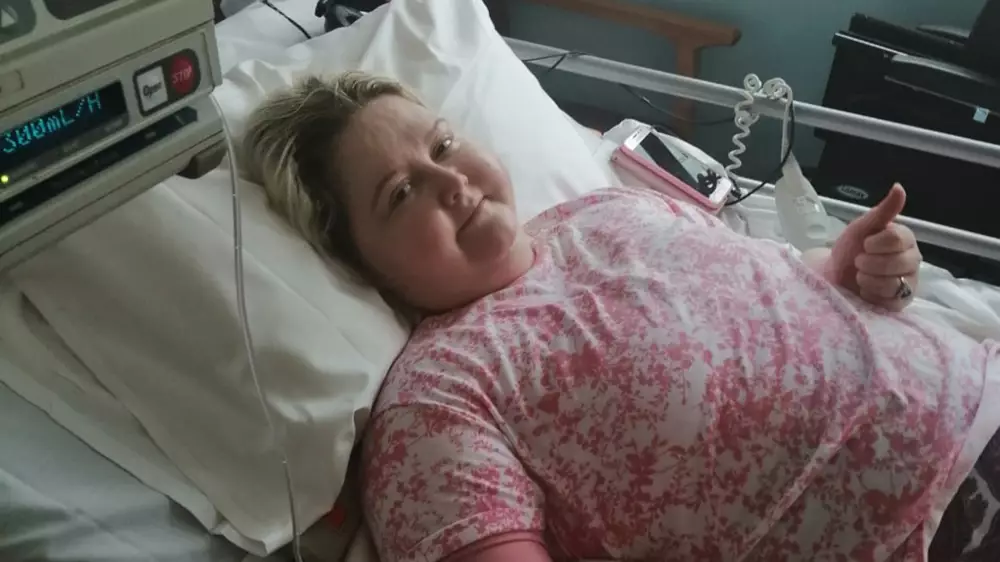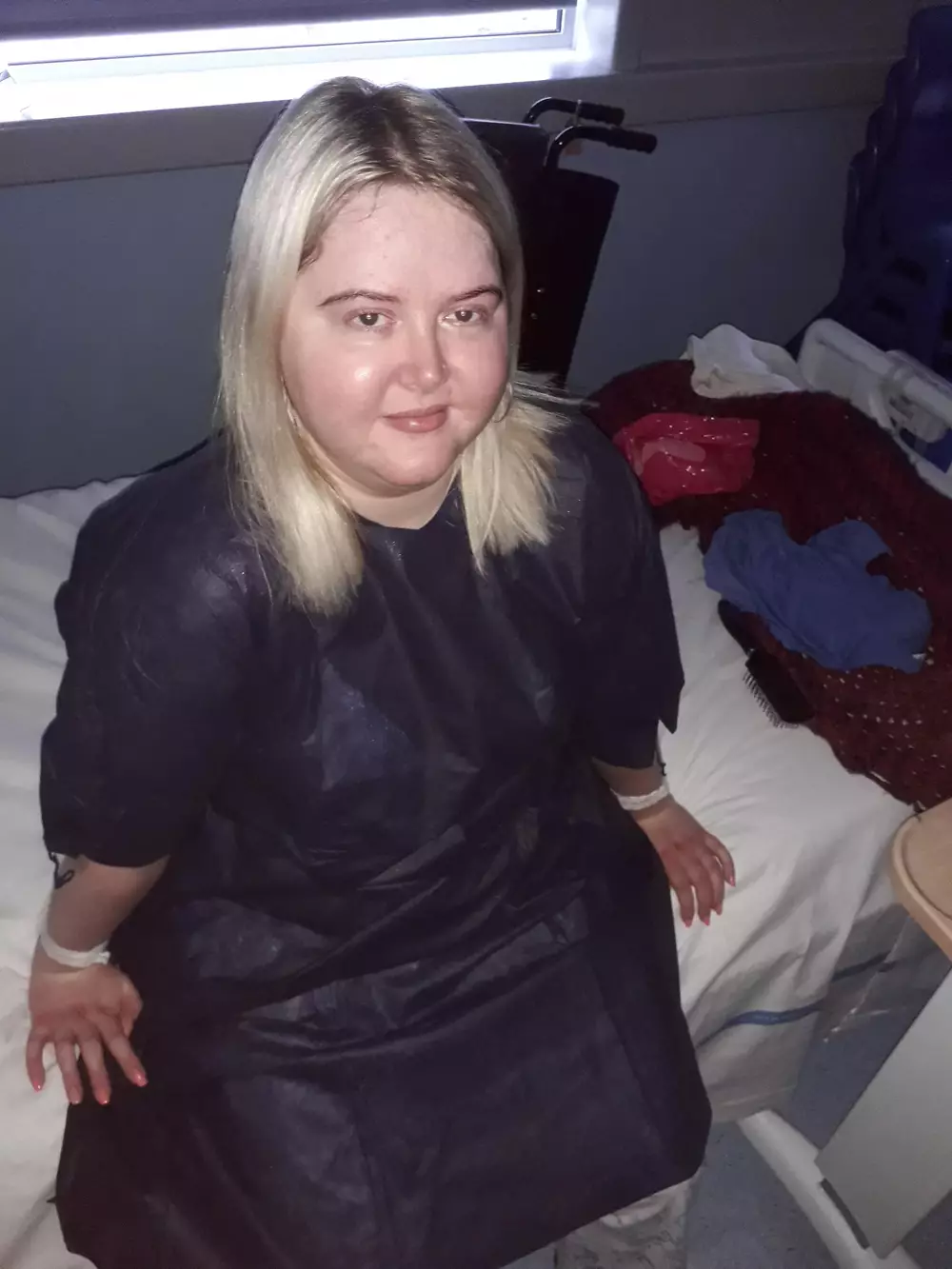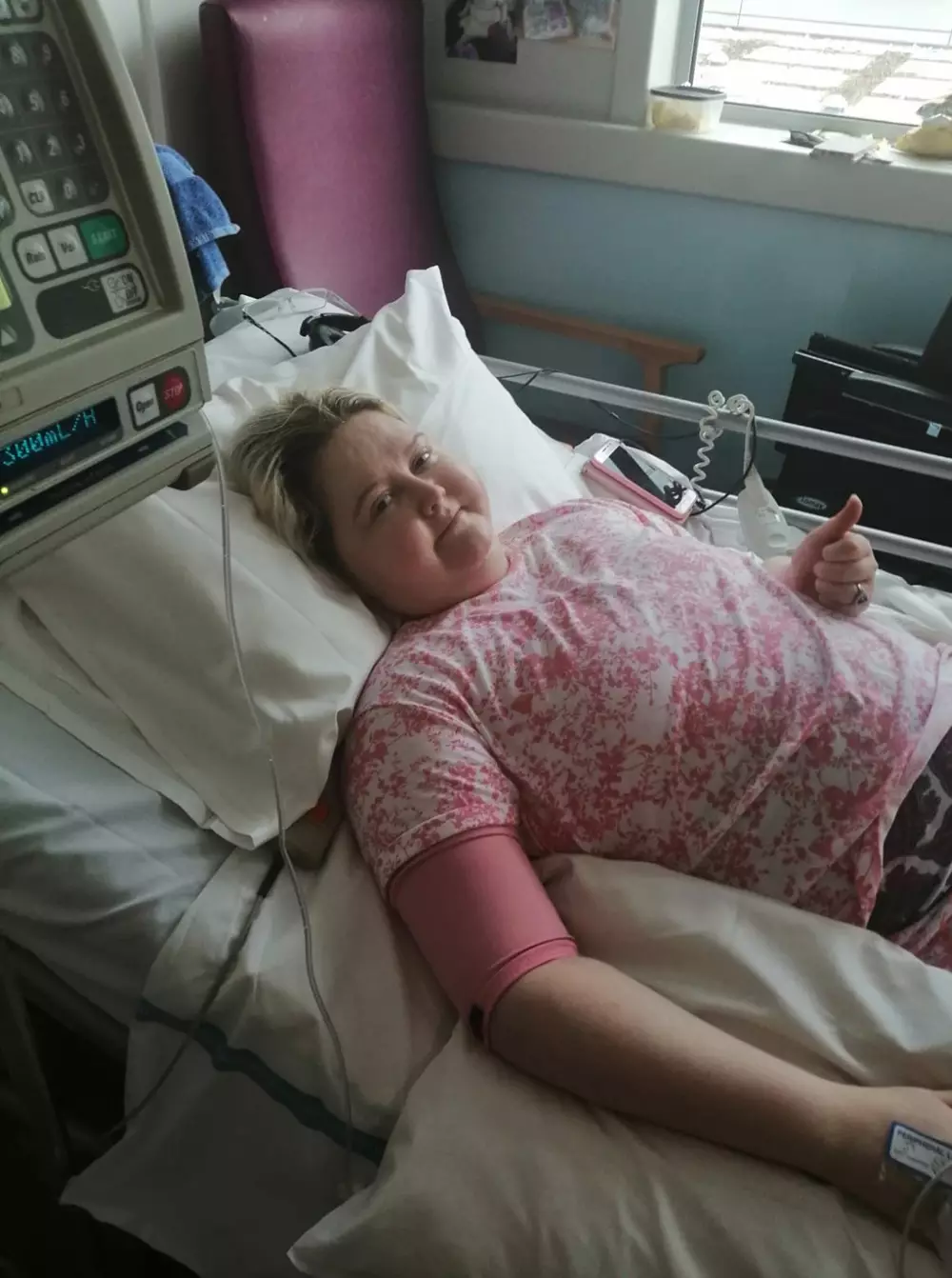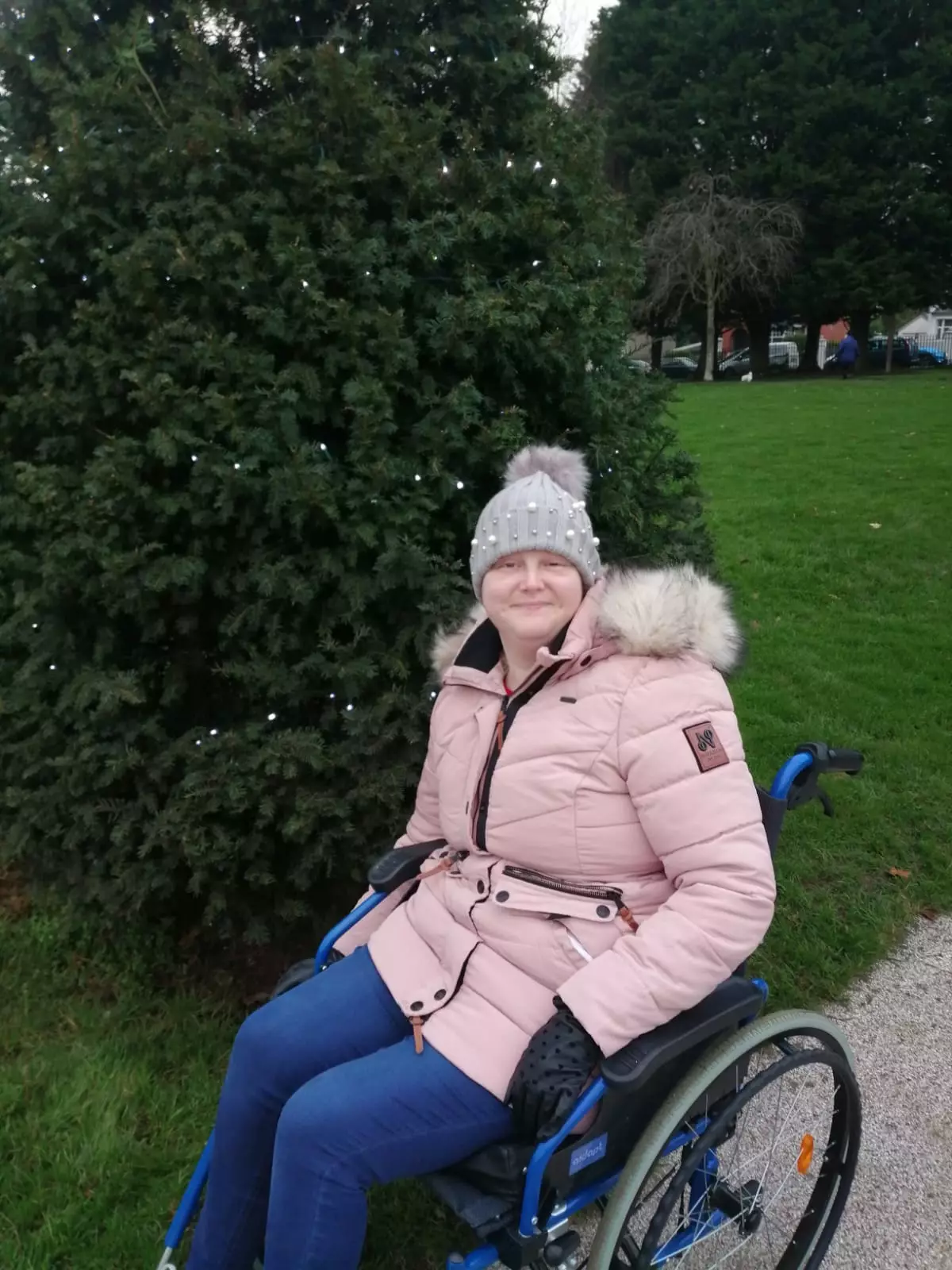
A woman has spoken out about her experience with a rare brain bug, which not only triggered terrifying hallucinations of spiders crawling all over her body, but also meant she had to relearn to walk.
When Aisling Tipping 34, first started feeling low and fatigued, she was prescribed medication for postnatal depression.
However, the mum-of-four then began to develop other symptoms including agonising headaches, double vision and balance issues, and in October 2018 was taken to Royal Victoria Hospital in Belfast, Northern Ireland.

After a series of tests, doctors eventually diagnosed Tipping with a severe form of encephalitis - a rare but serious inflammation of the brain, which happens when the body attacks itself in error.
Advert
Tipping, who was forced to leave her job as an insurance manager due to the illness, said: "I was getting really bad headaches and struggling with my balance.
"That was one of the scariest things - I was having to grip onto walls to steady myself.
"I joked to my family that I felt like I was walking like John Wayne."

She continued: "I started having hallucinations. On a few occasions, I jumped out of bed because I thought I could see spiders.
Advert
"On another occasion, I had a panic attack in a beauty salon, where I'd gone to get a facial. The staff were so worried that they were going to ring an ambulance, but I managed to calm myself down."
Tipping thought the problem may have been linked to her eyesight, so went to see an optician, but from there she was referred for a CT scan and blood tests at hospital.
"Things didn't get better, so I went over to casualty, where they quickly realised it wasn't my eyes - it was something neurological," she said.
Advert
"I was admitted to hospital that same day."

She added: "The day after I was admitted, my speech began to really slur.
"It felt like my tongue was too big for my mouth."
Advert
Hospitalised for two-and-a-half months, she had to relearn basic skills like washing, dressing, walking and talking.
In early 2019 she was then transferred to a rehabilitation unit at Belfast's Musgrave Park Hospital.
"That was intense - like a bootcamp," she said.
"I had occupational therapy, physiotherapy, art and music therapy.
Advert
"The doctors and nurses were all lovely though. I felt very lucky to have got a bed there."

Tipping has been continuing further treatment including physical therapy, speech therapy occupational therapy and psychology.
After having to return to hospital several times, she has now been at home in Craigavon, County Armagh, with her mum Ita and stepdad Mark since March 2020.
Still struggling with speech, Tipping also has ataxia - a disorder affecting co-ordination, sometimes caused by brain damage - which has triggered a tremor in both her hands.
But she has been making great progress, gradually reducing the amount of medication she requires while also throwing herself into a number of community support groups.

She said: "It's very hard to reflect on what I've been through. It almost feels like I have post-traumatic stress disorder.
"Naturally, I'm devastated by what's happened, but I have tried to keep my sense of humour. My motto is, 'If you don't laugh, you'll cry.'
"You have to just put on your big girl pants, get on with it and keep going.
"It may not be the one I'd planned or imagined - but I want to show that there is a life after encephalitis."

Speaking ahead of World Encephalitis Day on 22 February, Tipping is determined to raise awareness of the condition.
The Encephalitis Society - a charity that has provided a great deal of help to Aisling and her family - estimates there are just 6,000 cases of encephalitis in the UK each year.
While symptoms vary, they can include confusion, hallucinations, memory loss, seizures, uncharacteristic behaviour, a high temperature and headaches.
Tipping said: "Doctors have said I could improve, but for now, I am taking things day by day.
"I know I need to have realistic expectations, but I am also determined to keep going and keep smiling.
"I'm immersing myself in all sorts of different therapies, including a programme that gives vocational training, and I'm so thankful for the support of my loved ones and charities like Encephalitis Society."
Featured Image Credit: PA Real Life